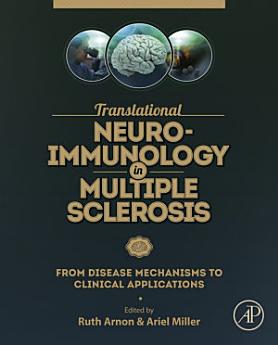Translational Neuroimmunology in Multiple Sclerosis: From Disease Mechanisms to Clinical Applications
Giới thiệu về sách điện tử này
Giới thiệu tác giả
PROF. RUTH ARNON, formerly Vice-President of the Weizmann Institute of Science (1988-1997), is a renowned immunologist. Prof. Arnon joined the Institute in 1960. Prior to her appointment as Vice-President, she served as Head of the Department of Chemical Immunology, and as Dean of the Faculty of Biology. From 1985 to 1994, she was the Director of the Institute's MacArthur Center for Molecular Biology of Tropical Diseases. Prof. Arnon has made significant contributions to the fields of vaccine development, cancer research and to the study of parasitic diseases. Along with Prof. Michael Sela, she developed Copaxone® a drug for the treatment of multiple sclerosis which was approved by the U.S. Food and Drug Administration, and is presently marketed in the USA, Canada the EU, Australia and many other countries worldwide. Prof. Arnon is a member of the Israel Academy of Sciences, and serves as its President since 2010. On the world scene, she is an elected member of the European Molecular Biology Organization (EMBO), and is a member of the American Philosophical Society (APS). She has served as President of the European Federation of Immunological Societies (EFIS), and as Secretary-General of the International Union of Immunological Societies (IUIS), and as a member of the European Union Research Advisory Board (EURAB). She served also as the President of the Association of Academies of Sciences in Asia (AASA). Her awards include the Robert Koch Prize in Medical Sciences, Spain's Jiminez Diaz Memorial Prize, France's Legion of Honor, the Hadassah World Organization's Women of Distinction Award, The AESKU Prize for Life Contribution to Autoimmunity, the Tovi Comet Award, the Wolf Prize for Medicine, the Rothschild Prize for Biology and the Israel Prize for Medicine. She is an Honorary Fellow of Tel-Hai College and the Holon Institute of Technology. She received Honorary Doctorates from Ben-Gurion University of the Negev, Tel-Aviv University, The Open University of Israel and Leuphana University of Luneburg, Germany.
Prof. Ariel Miller holds a M.D. degree from the “Sackler” school of Medicine, Tel-Aviv, and a Ph.D. degree in Experimental Sciences (Neurobiology) from the Hebrew University of Jerusalem. He is a senior neurologist since 1989. From 1989 to 1992 he was a research fellow at the Center for Neurologic Diseases, Brigham and Women’s Hospital, Harvard Medical School, Boston, as a scholar of the Fogarty International Research Fellowship (N.I.H.). From 1992 to 1993: Scientist in the Department of Cell Biology, The Weizmann Institute of Science, Rehovot, Israel. He is currently the head of The Center for Multiple Sclerosis & Brain Research at Carmel Medical Center, and co-director of the Pharmacogenetics & Personalized Medicine Center, The Rappaport Faculty of Medicine & Research Institute at the Technion-Israel Institute of Technology, Haifa, Israel.Prof. Miller is the founder and first president of the Israel Society for Neuroimmunology (President 2000-2009), elected member of the American Neurological Association (ANA) (2005), and the recipient of the Hershel Rich Technion Innovation Award - 2006, for his contribution in the field of Pharmacogenetics and 'Personalized Medicine'. Prof. Miller's scientific and medical work is dedicated to elucidation of the mechanisms underlying Brain diseases, with special focus on implementation of therapeutic strategies for Multiple Sclerosis as well as Pharmacogenetics towards development of 'Personalized Medicine'.




